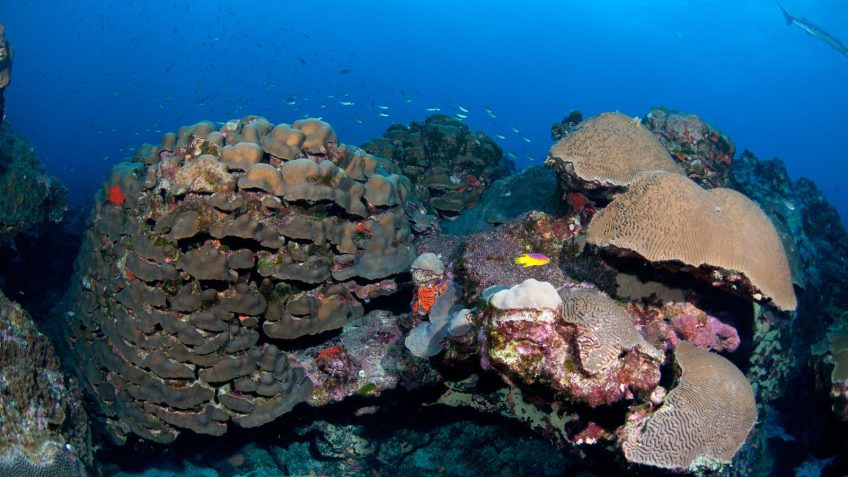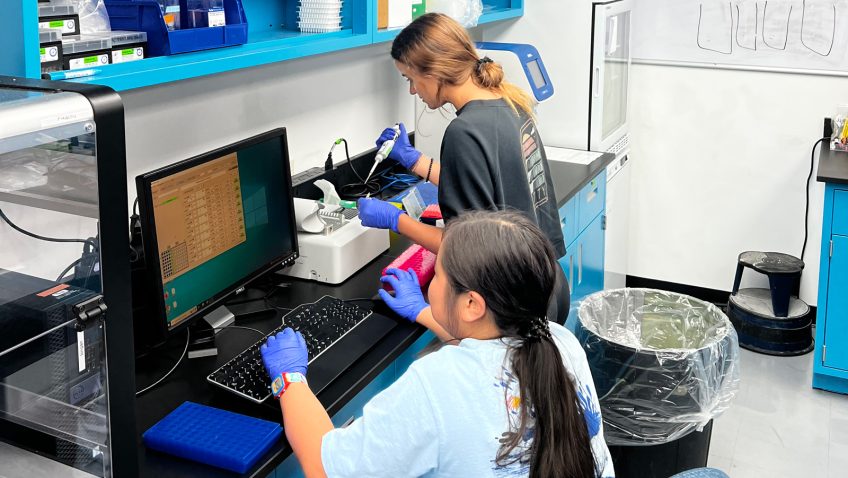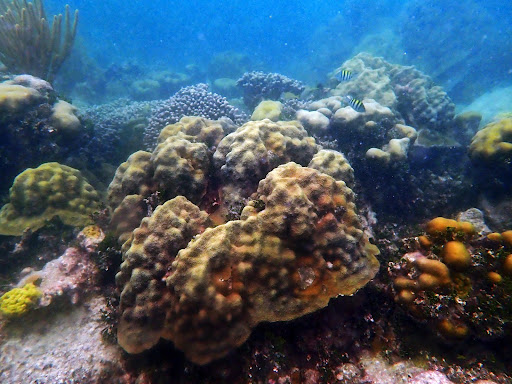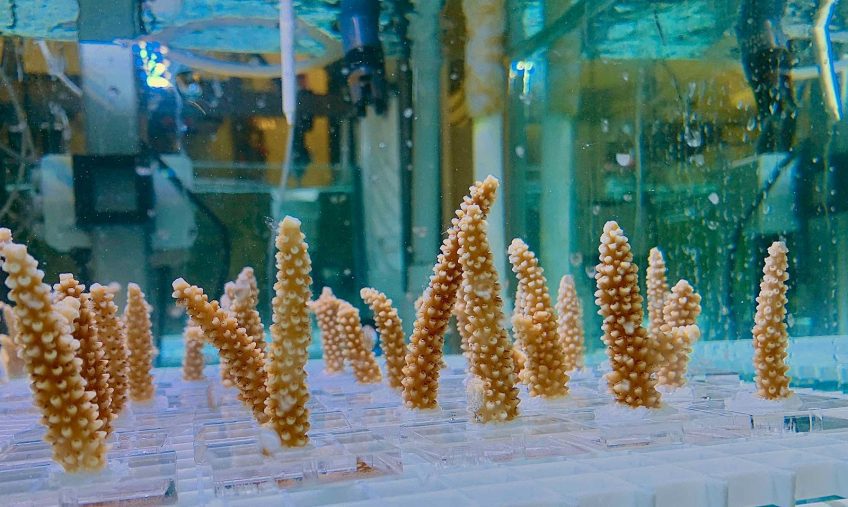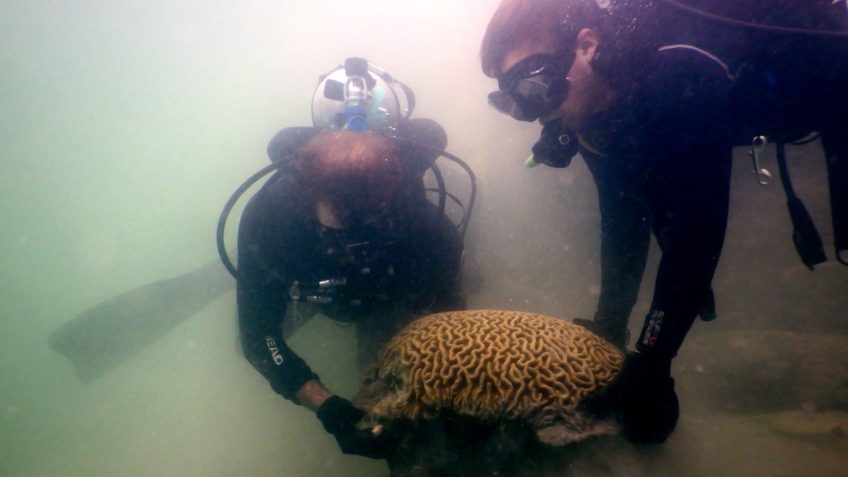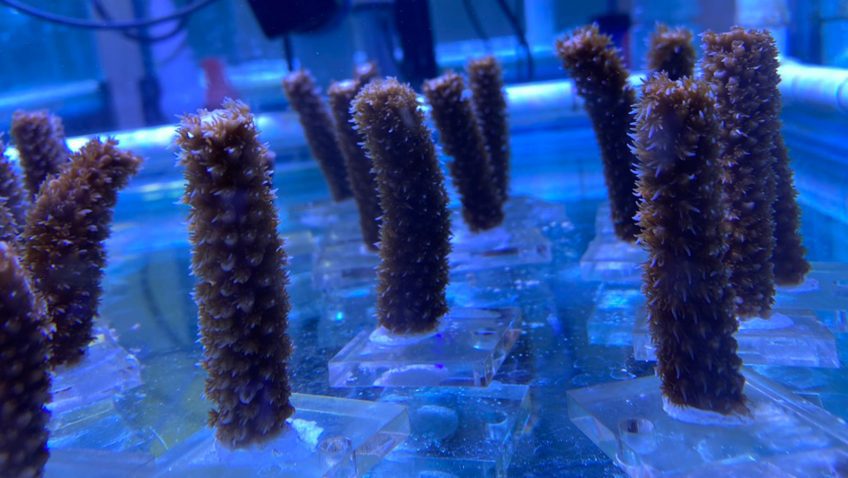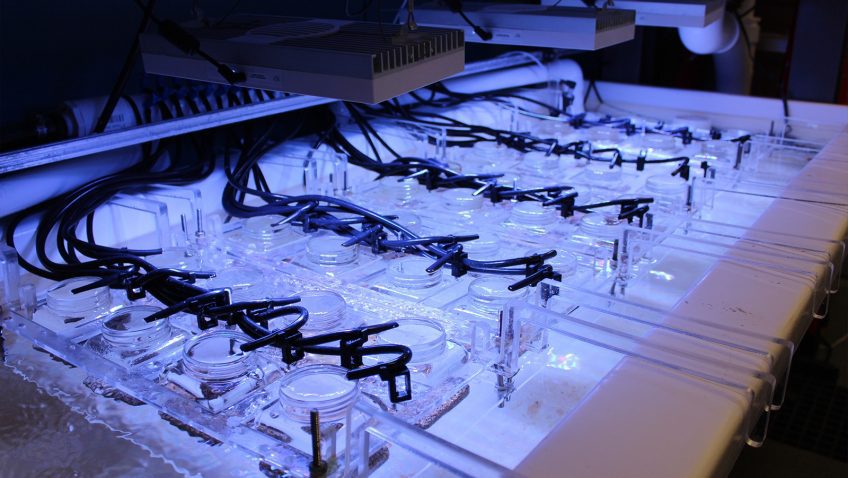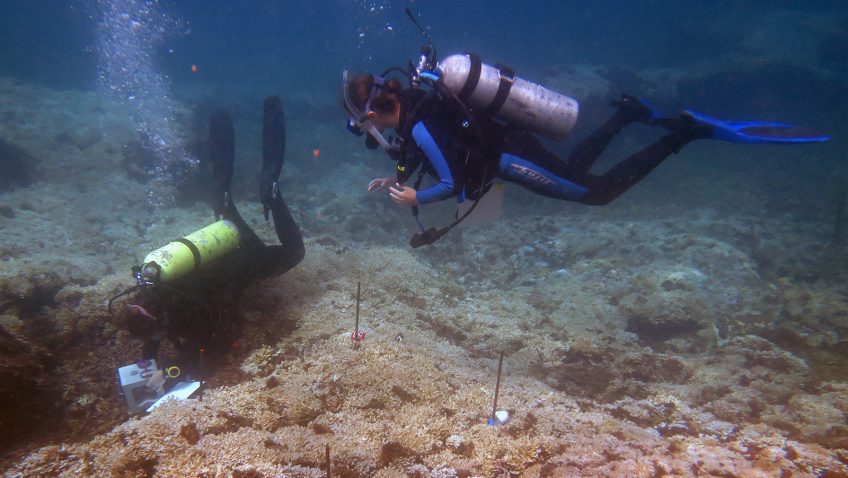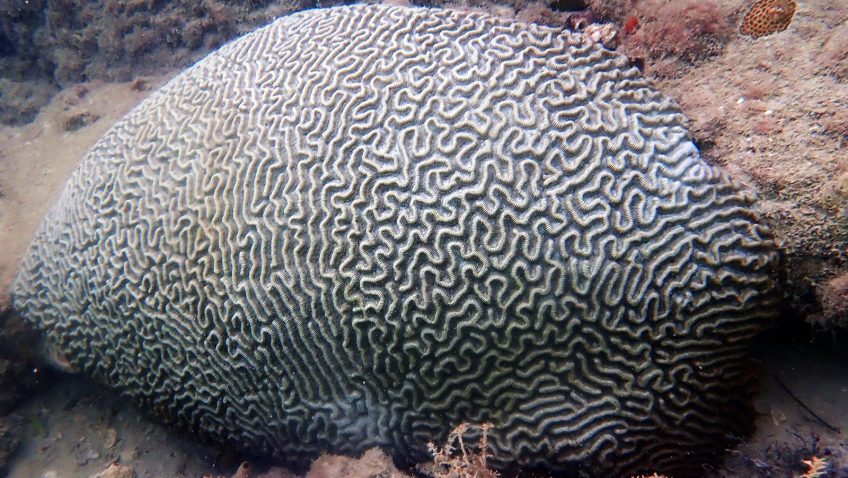When we look at the state of corals globally, it can be difficult to see a silver lining, but a recent paper published in Frontiers in Marine Science shows hope for corals in unlikely places. In the study, scientists at NOAA’s Atlantic Oceanographic and Meteorological Laboratory (AOML) and the Cooperative Institute for Marine and Atmospheric Studies (CIMAS) at the University of Miami Rosenstiel School of Marine and Atmospheric Science compared the molecular processes of brain corals (Pseudodiploria strigosa) living in urban waters at the Port of Miami with offshore corals at Emerald Reef. They found the urban corals had adapted to challenging conditions that helped them differentiate and consume healthy food particles over diseased organisms.

